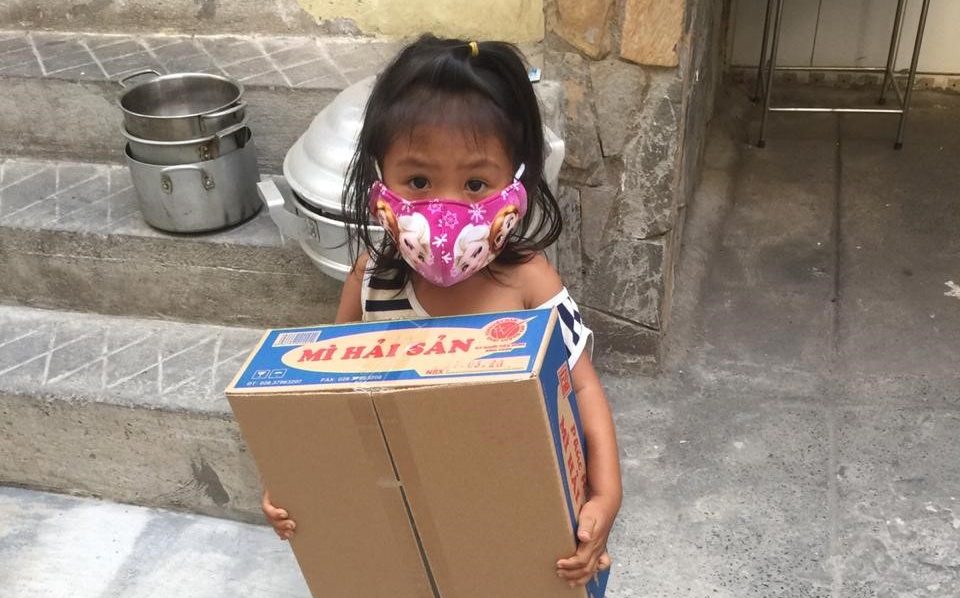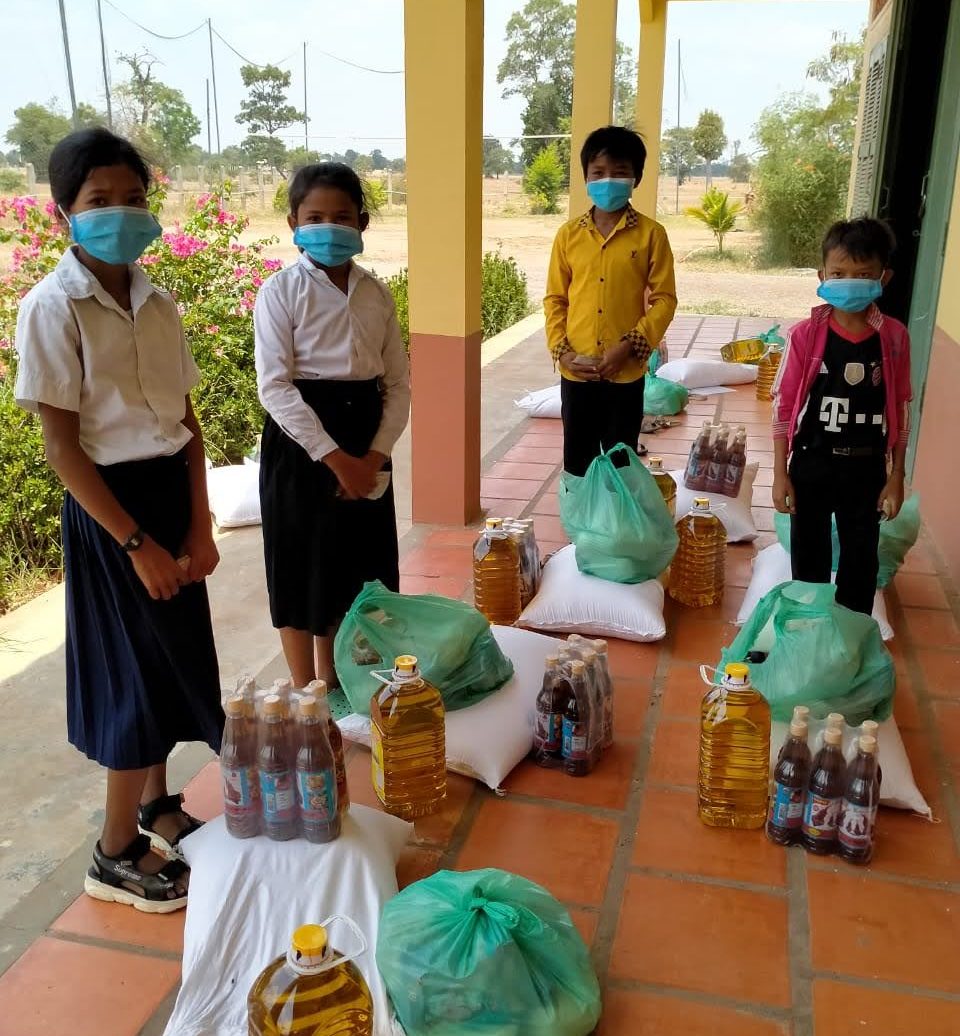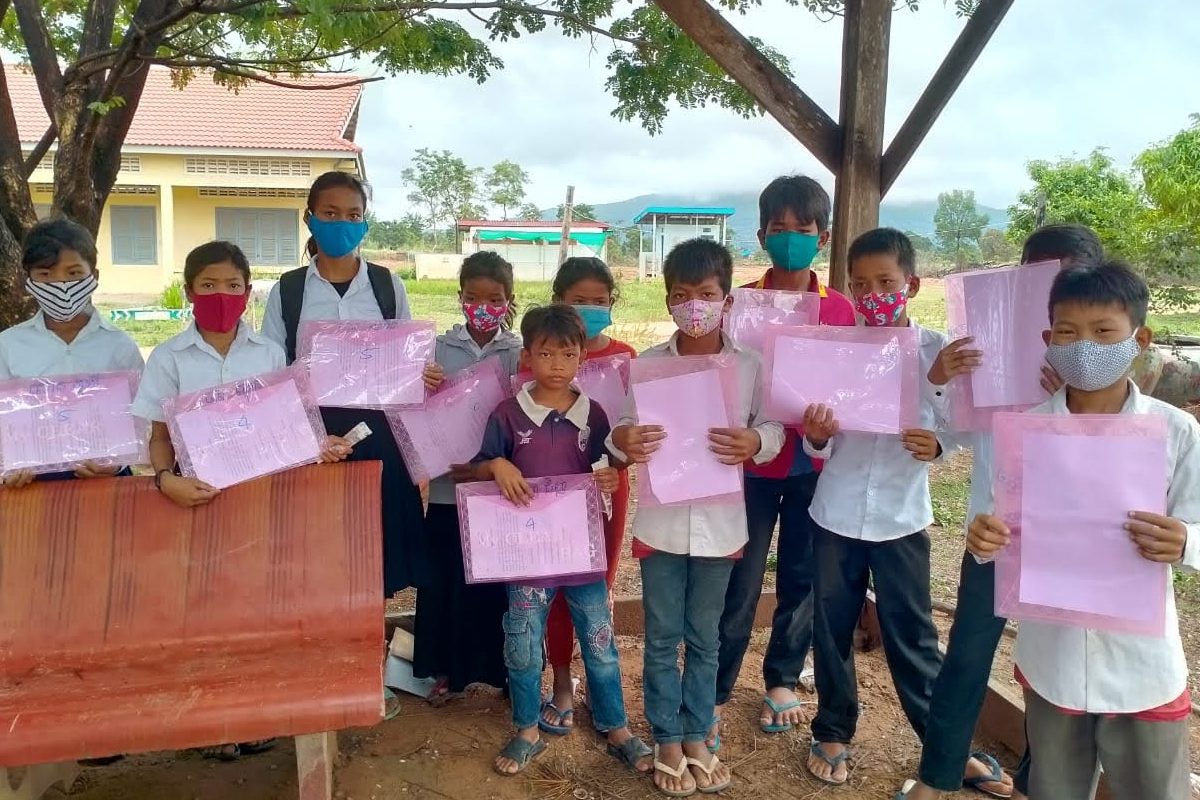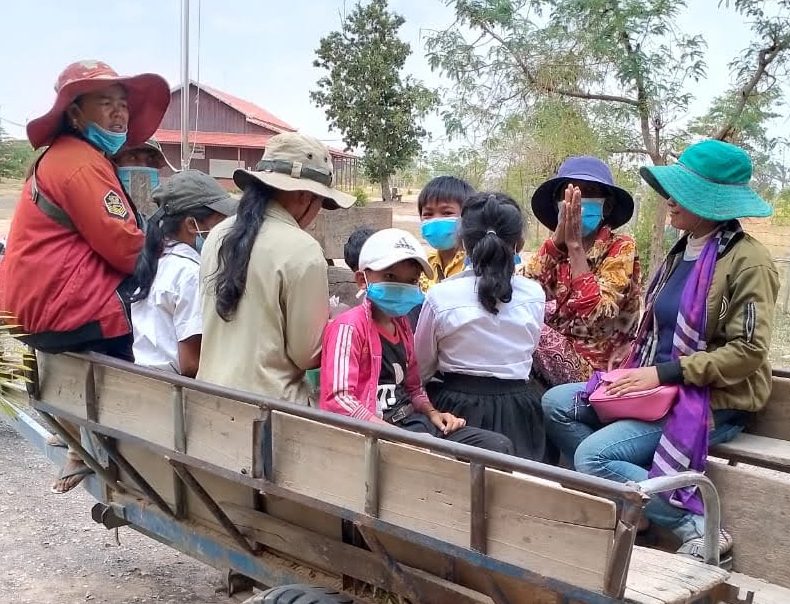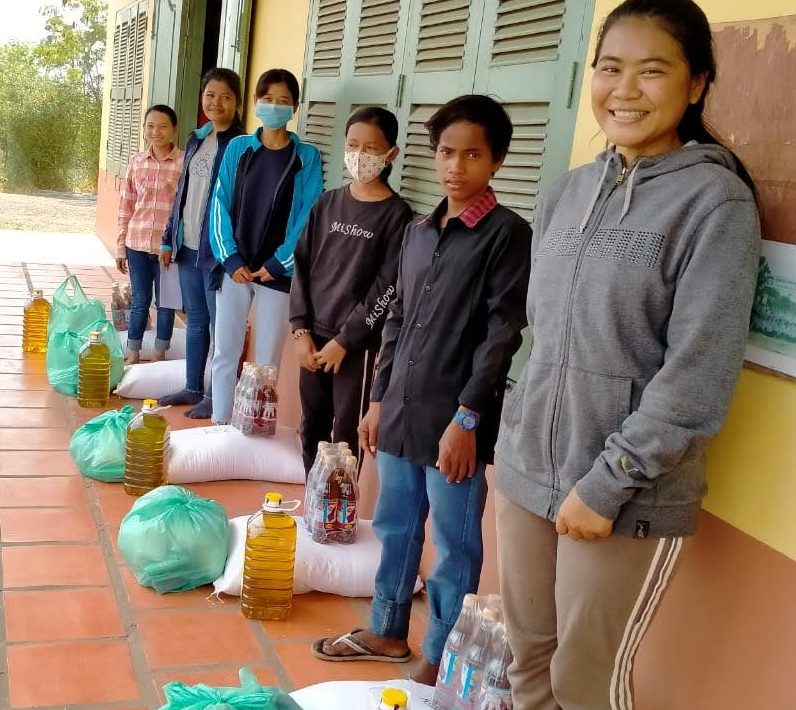How our education centre in Samrong is dealing with the pandemic
The COVID-19 crisis has been difficult for everyone, today we are checking in with our Cambodian education centre in Samrong, located in the middle of Otdar Meanchey, a rural province in North West Cambodia, to see what was done by our teams to mitigate the impact of the crisis.
Compared to many other countries in the region and in the world, Cambodia is lucky to have registered less COVID-19cases. https://www.worldometers.info/coronavirus/country/cambodia/
But at the end of 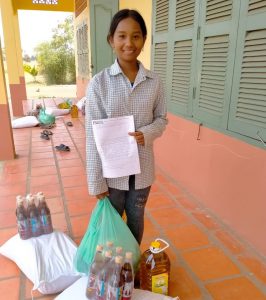 March Cambodian authorities decided to put in place the necessary measures to keep everyone safe. Schools closed down on the 18th of March, borders were closed and all international flights, train and ferries rides were put on hold.
March Cambodian authorities decided to put in place the necessary measures to keep everyone safe. Schools closed down on the 18th of March, borders were closed and all international flights, train and ferries rides were put on hold.
Samrong Education centre wasn’t spared as it isn’t considered an orphanage therefore all the children had to be sent home.
It was a complicated return for most of the 82 students, as back home they have precarious living conditions and have to work in the fields with their parents.
Seeing the empty centre was very difficult for both the staff and the overseas volunteers. Nevertheless, it was necessary in order to bounce back and help young people in another way.
SAMRONG CENTRE
Samrong is located in Oddar Meanchey province, in Northwest Cambodia.
For many children living in this area, it’s hard to get to school as physical access remains very hard, the cost of transport is expensive and the number of walking hours is too high. Many children find themselves having to convince their parents of the importance of school as the parents depend on their sons and daughters to also bring back an income. Therefore, the dropout rate is very high.
The Samrong Education Centre works with the public schooling system. The Centre provides full boarding which includes accommodation, tuition, extracurricular activities and various types of material support, to enable disadvantaged students to pursue secondary education.
Applicants to the centre are selected based on their family’s economic situation, their personal motivation, and their academic achievements. The centre aims to provide these students with the means to become well-balanced people.
Click here to learn more about the centre.
MONTHLY DISTRIBUTIONS
The main issue faced by families in Otdar Meachey province was the loss of income due to the lockdown. Indeed, many parents or siblings were working nearby in Thailand and came back just before the borders closed. Others who were working in construction sites near Sianoukville or Phnom Penh also came back to their village. Furthermore, since our centre was closed, the families had an extra mouth to feed.
Children of the Mekong’s social activities have been continuing, both for family visits and monthly distributions. Each month, the children received 25kg of rice, a hygiene kit and 30,000 riels.
In addition, an important operation to support the families of the children has been carried out in May. Each family received the following support:
- 50 kilos of rice (equivalent to £25)
- 5 tins of sardines (equivalent to £2.50)
- 50,000 riels (equivalent to £12.50)
- Soaps and mask (equivalent to £3)
- Transportation for the children to return home (varies with distance)
During this distribution, our social workers followed safety rules such as:
- Mandatory face masks
- Gathering of up to maximum 5 students
- Regular hand washing
Click here to see how other countries in which we are based are dealing with the crisis
ONLINE COURSES
Our priority has been to set up distance learning courses for our students. Every member of Children of the Mekong team has therefore mobilized to implement online courses via the online platform “Google Classroom”.
This came as a complement to other actions carried out by the Minister of Education, such as giving teachers incentive to teach in villages and give courses on national TV channels.
About 85% of our students have access to a mobile phone (from an elder sibling or a parent). The primary steps were to teach them how to create a Google account, so they could have access to classes.
The local teachers received training to use the Google Classroom app as well. The tool provides access to written and video courses as well as exercises to be handed in.
The main challenge for our students is having access to the family phone and/or to a good connection. Our social workers went to the villages weekly to distribute handouts of courses and exercises to the children who couldn’t access them online, so they can continue to study.
Grade 9 and 10 are studying physics, chemistry, Khmer and math courses. Grade 11 and 12 are receiving the same courses, as well as biology and English. They have two lessons and two exercises per week for each topic.
As of right now, the authorities have not informed us when schools will reopen and exams will take place.
COST OF THE CENTRE
Over the months of April, May and June, the monthly running costs of the centre have been cut in half. The main reason being the food budget which was close to zero given that only the staff members were eating there.
We have continued to pay our local staff: two social workers, one guardian and one cook, as well as the teachers who are teaching through Google Classroom.
Our social monitoring costs have increased, given that our social workers have been going more often to the villages to distribute handouts to those who can’t follow online courses.
We will keep a special focus in the coming months on an individual follow up of the children, to ensure that they are keeping up with their classes and help with some challenges they might be facing.
Continuous schooling despite lockdown, distribution of food and essentials, this could not happen without the support of our generous donors. You can also help!
Donate to our Coronavirus – Emergency Food Aid programme now